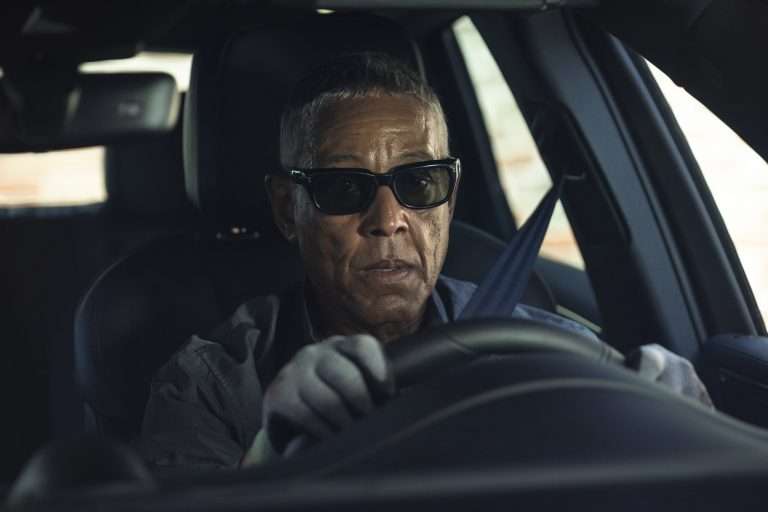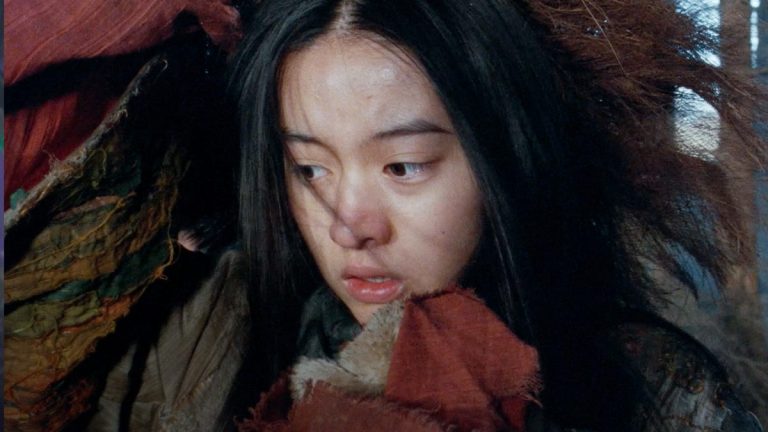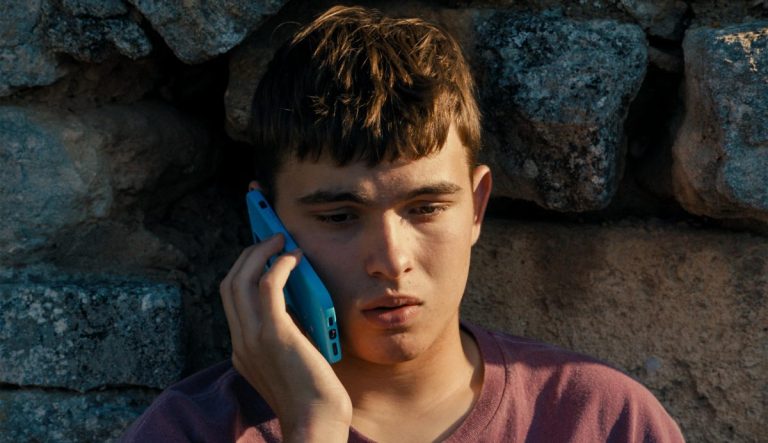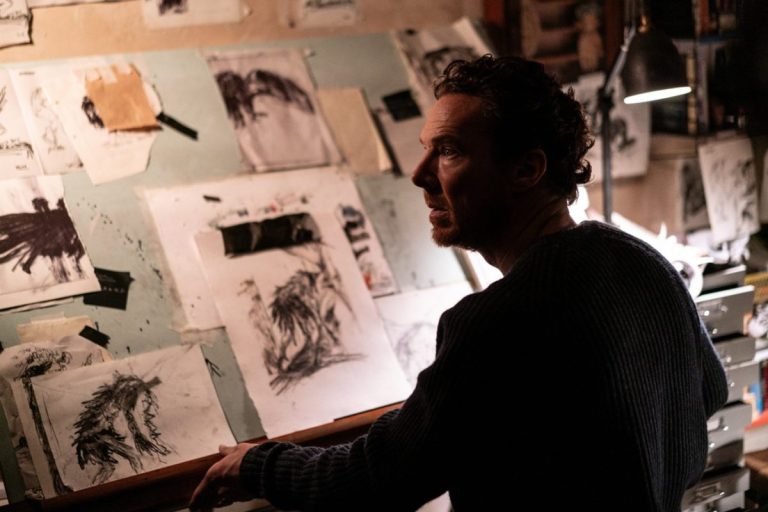The Clovehitch Killer (2018) is a slow-burning psychological thriller that explores suspicion, inherited guilt, and the horrifying possibility that evil might dwell within the very heart of home. Set in a devout, tight-knit town still reeling from a string of unsolved murders, the film meticulously dismantles the façade of the all-American family, posing deeply unsettling questions: What if the monster you feared most was your own father? Would you expose him—or preserve the family name at any cost?
Directed with chilling restraint, the film avoids gratuitous violence, opting instead for a creeping dread built through furtive glances, uncomfortable silences, and secrets too dangerous to name. At its center is 16-year-old Tyler Burnside, a clean-cut teenager whose accidental discovery of a single photograph becomes the first tug of a thread that unravels everything he thought he knew.
Spoilers Ahead
The Clovehitch Killer (2018) Plot Summary & Movie Synopsis:
How Does Tyler Discover His Father’s Dark Secret?
Tyler is introduced as a typical teenage boy – polite, God-fearing, a scout, and trying to navigate adolescence in a conservative town. But everything changes the night he borrows his father Don’s truck for a date. When the girl finds a bondage photograph between the seats, the discovery sparks gossip that quickly labels Tyler a pervert. Ostracized by his church and scout troop, Tyler becomes a social pariah.
What starts as a scandal about sexual curiosity soon morphs into a horror story. Instead of simply discarding the incident, Tyler begins to question why the photo was even there. As doubts creep in, his suspicion turns inward – to his father. Don, a respected community figure and family man, suddenly seems more private, more distant. Tyler investigates Don’s shed and discovers a hidden compartment filled with bondage magazines and a Polaroid of a bound and bruised woman – eerily similar to the Clovehitch Killer’s victims.
Who Is Kassi, and Why Does She Help Tyler?
Isolated and uncertain, Tyler turns to the only person he can think of: Kassi, a fellow high schooler and social outcast who happens to be obsessed with the Clovehitch case. Kassi is introduced not as a clichéd “true crime nerd,” but as someone carrying real emotional baggage. Her interest in the killings is personal, and that personal connection becomes clearer later in the film.
Together, Tyler and Kassi investigate Don further, and the evidence becomes damning. Hidden beneath the house, Tyler finds driver’s licenses belonging to the ten confirmed victims – and three more. He also sees dozens of Polaroids of other bound women. Kassi helps him identify one of the unknown victims as her own mother. Now the question is no longer “Is Don the killer?” – it’s “What do we do about it?”
What Is Don’s Explanation, and Why Does Tyler Pretend to Believe Him?
Sensing that Tyler knows too much, Don takes him on a father-son camping trip. What should be a bonding experience becomes a quiet psychological standoff. Don calmly confesses – but with a twist. He claims his brother Rudy, who is now in a vegetative state, was the real killer.
The story is slick, manipulative, and wrapped in just enough emotion to feel plausible. Don tells Tyler that he kept the evidence not to hide it, but in hopes of one day giving closure to the victims’ families. In a deeply uncomfortable moment, father and son burn the stash together. Tyler appears convinced. But it’s all a lie – an act of survival. Tyler pretends to play along while formulating a plan.
What Happens in the Final Confrontation Between Don and Tyler?
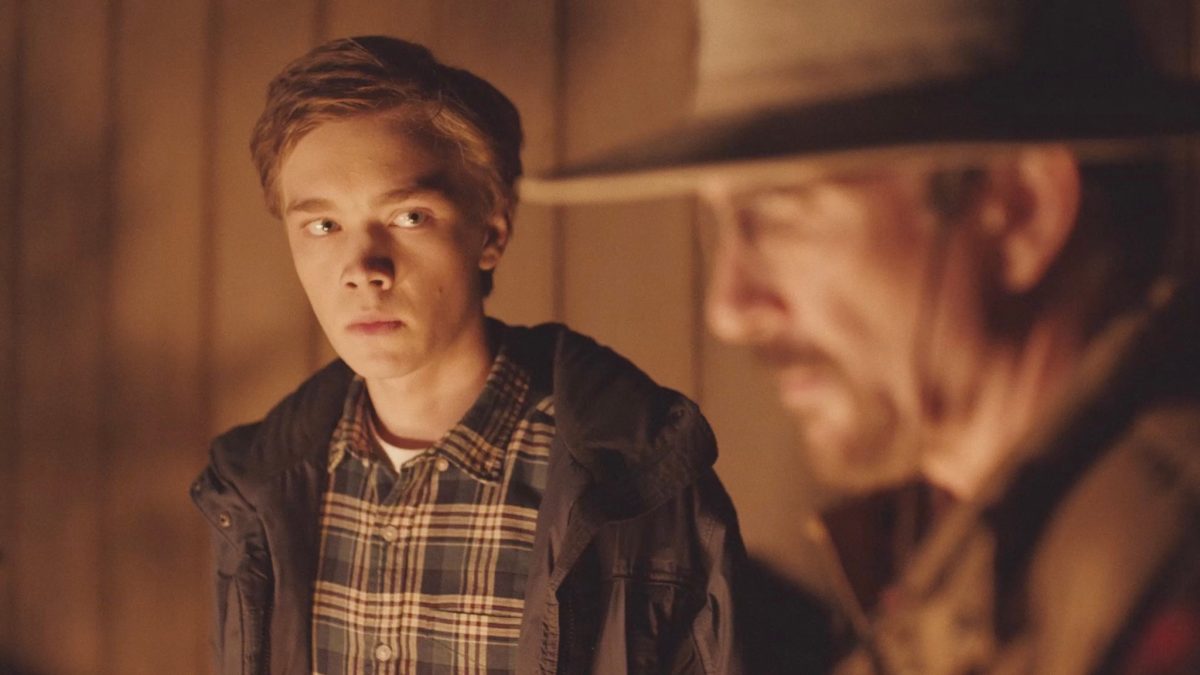
After sending his wife and daughter away, Don stays behind alone. He resumes his disturbing behavior – photographing himself in bondage gear, stalking a new woman, breaking into her home, and attempting to kill her. But Tyler and Kassi are already onto him. Tyler never went to scout camp; he had been following his father all along.
The confrontation is tense and tragic. Tyler tries to talk to his father, pleading for the truth. Don deflects, claiming the bound woman is his mistress and the situation is consensual. When Kassi tries to help the woman escape, Don attacks her and grabs the rifle from Tyler. He shoots, only to find the gun isn’t loaded. The moment symbolizes how power has shifted: the son now has control. Kassi regains consciousness and knocks Don out. They win, but barely. What follows is not a call to the police. It’s a cover-up.
The Clovehitch Killer (2018) Movie Ending Explained:
Why Does Tyler Let Don Die in the Woods?
In the final moments, Tyler and Kassi drive Don deep into the forest. Don begins to regain consciousness as Tyler points a gun at him. But instead of begging for his life, Don looks at Tyler with something unsettling: pride. It’s as if he sees Tyler’s willingness to kill as a rite of passage, a twisted legacy. Tyler pulls the trigger.
The scene then shifts to Don’s funeral. The community believes he took his own life. Tyler gives a eulogy filled with quiet grief and public composure. He says, “Dad, if you can hear me, I love you.” But his love is complicated, stained with horror and betrayal. The eulogy is intercut with the real ending: the murder in the woods, the calculated disposal of Don’s body, and the emotional cost Tyler and Kassi now bear.
Why Doesn’t Tyler Go to the Police?
This is the film’s most haunting question. On paper, Tyler and Kassi had more than enough evidence to prove Don was the Clovehitch Killer. So why cover it up? For Tyler, it’s not just about justice – it’s about family. About protecting his mother and younger sister from the unbearable truth. It’s about ensuring the community doesn’t fall apart.
In killing Don and staging a suicide, he gives everyone closure without destroying lives. But that closure comes at a price: Tyler sacrifices his own innocence. For Kassi, it’s about finally avenging her mother – not through the courts, but through a direct act of retribution. Her complicity in the cover-up is an act of personal justice.
What Does the Ending Really Mean?
“The Clovehitch Killer” doesn’t end with relief. It ends with quiet devastation. Tyler is no longer a boy; he’s someone who has killed to protect others. Don’s legacy dies with him, but so does part of Tyler’s soul. The film refuses to moralize. It leaves us with ambiguity: Was Tyler right to take justice into his own hands? Could the truth have done more harm than good?
There is no triumphant music. No satisfying takedown. Just silence, a funeral, and a town that will never know how close they were to evil. The film’s most terrifying idea is not that serial killers exist – it’s that they can hide in daylight, under the skin of perfect fathers and trusted leaders.
Don Burnside was not a monster in the shadows. He was a man who made pancakes, went to church, and coached scout meetings. The film’s emotional arc belongs to Tyler, who learns that love for your family does not mean blind loyalty. His decision is both brave and morally grey. He silences a killer but loses part of himself in the process.
“The Clovehitch Killer” ends not with catharsis, but with a quiet, lingering question: If the devil wears a friendly face, would you recognize him – and would you dare to act?

![Someone’s Watching Me! [1978]: The Lost John Carpenter Suspense Classic](https://79468c92.delivery.rocketcdn.me/wp-content/uploads/2018/02/Someones-Watching-Me-Screenshot-768x432.jpg)
